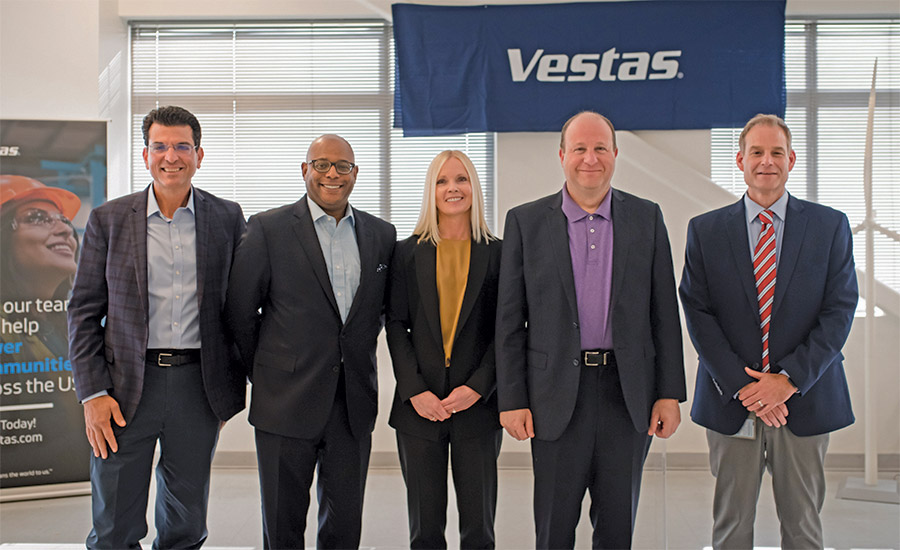“The Colorado Front Range is one of the toughest environments in which to develop and implement zero emissions strategies, with huge temperature swings along with ice and snow.”
—Matt Sibul, Senior Vice President and Southwest District Transportation Lead, WSP
WSP to Develop Low/No Emissions Plan for Denver RTD
Environment and professional services consultancy WSP has entered into a contract with the Regional Transportation District of Denver to evaluate the feasibility of transitioning the agency’s facilities and fixed-route fleet to low/no-emission operations. The holistic plan, which is expected to be finalized in late 2024, will outline recommendations for facilities, fixed-route services by fleet type, a replacement schedule and overall cost projections and proposed timelines.
“RTD remains focused on transitioning to a sustainable energy future,” said Debra A. Johnson, RTD general manager and CEO. “The first step in that transition is to understand and consider all aspects of RTD’s system, including its facilities, infrastructure and transit service delivery model. This plan will guide RTD’s future decisions as the agency transitions to low/no emissions.”
WSP’s expertise in this area will ensure RTD’s transition plan is not only comprehensive but also specific to the agency’s needs and operating environment. It will also align with the federal bipartisan infrastructure law.
WSP is partnering with the regional firm Felsburg, Holt and Ullevig (FHU) to develop the plan. FHU and WSP teamed up to deliver on the precursor to this project called “Reimagine RTD.” RTD’s first steps toward a low/no-emission bus fleet transition were taken in 2000 with the deployment of hybrid-electric buses using compressed natural gas along the 16th Street Mall. In 2008, a subfleet of hybrid diesel-electric fixed-route buses was introduced to the system.
Eventually, all MallRide buses were replaced in 2017 by a fleet of 36 zero-emission battery electric buses.
McCarthy Tapped for UCHealth Longs Peak Expansion, Renovation
McCarthy Building Cos. has started work on a 90,000-sq-ft expansion and renovation project at UCHealth Longs Peak Hospital in Longmont, Colo. The project is expected to complete in the summer of 2025.
In collaboration with architectural partner Page, the project features a three-part expansion totaling more than 60,000 sq ft with a 46,500-sq-ft expansion on the north building and the addition of one story to the existing three-story tower. The project also includes filling in an existing courtyard and building out the utility plant to increase capacity.
The shelled space will accommodate future growth and will be capable of housing additional operating rooms or other department expansions.
Sturgeon Electric is the electrical trade partner on the project.

Global OEM Vestas recently announced two Colorado factory expansions. From left to right: Jason Grumet, ACP CEO; Robert Kenney, president at Xcel Energy; Laura Beane, president of Vestas Americas; Colorado Gov. Jared Polis; and David Ivan, senior vice president/COO at Vestas.
Photo courtesy Vestas
Vestas Invests $40M In Colorado Factories
Vestas is investing $40 million at its two Colorado factories to manufacture the V163-4.5MW wind turbine, the original equipment manufacturer’s newest model for the U.S. onshore market.
The company expects to hire between 800 and 1,000 local employees to support the manufacturing efforts at both its blade facility in Brighton and nacelle factory in Windsor, cities north of Denver.
Plans call for building expansions, new blade molds and installation of new equipment for production of the V163-4.5MW turbine, which is designed for low-to-medium wind sites in the U.S. market. It has a 163-meter rotor diameter, larger than any of Vestas’ turbines installed in the U.S.
The Windsor site will begin manufacturing blades for the V163-4.5MW turbine this year, with the Brighton factory targeting production for 2024.
Vestas said the turbine will utilize an established supply chain and existing infrastructure, including transportation, installation and operations to support the rapid deployment of wind energy to meet the growing demand.
Relativity Architects Expands Into Mountain West
Los Angeles firm Relativity Architects has opened a Colorado office to engage developers in the Mountain West. The design firm has a decade of experience creating ground-up production campuses in several countries and converting warehouses into soundstages, adding power-intensive LED walls for special effects and other amenities used by production companies, including “Dancing with the Stars” and East End Studios. The firm also has expertise with multifamily housing communities, boutique hotels, mixed-use developments and restaurants.
Relativity’s co-founding principals—Scott Sullivan and Tima Bell—and associate principal/studio director Ginna Claire Nguyen will lead the office, located in Colorado Springs.
Sanderson Bellecci Merger
Sanderson Bellecci, a 130-person firm formed by the recent merger of Sanderson Stewart and Bellecci—with offices in Billings, Bozeman and Helena, Mont.; Fort Collins, Colo.; and Concord and Pleasanton, Calif.—has now merged with 38-person Summit Engineering of Reno and Elko, Nev.
The new partnership expands the firms’ service offerings and geographic reach to provide civil infrastructure design, residential land planning and design, commercial site planning and design, environmental permitting support, geotechnical and environmental engineering, community planning, construction management, surveying and mapping, landscape architecture and communications and visualization services to public and private clients and communities across the West.
The firms will continue to operate under their current brand names, managed by the current local owner/principals while functioning as a single enterprise under the leadership of CEO Michael Sanderson.
GSA Announces $88M to Boost Energy Efficiency at 18 Federal Sites in Denver
U.S. General Services Administration Administrator Robin Carnahan recently announced an $88-million investment, partially funded by the Inflation Reduction Act, to make 18 federal buildings in the Denver area more sustainable and energy efficient as part of President Biden’s Investing in America agenda.
Through an energy savings performance contract, GSA plans to upgrade building infrastructure and install new technologies that will reduce energy consumption and costs while also cutting dangerous climate pollution as well as create hundreds of local jobs annually.
Ameresco was selected as the energy service company to identify the potential investments, which are estimated to save more than $2 million per year at today’s energy prices and reduce greenhouse gas emissions by more than 29,000 metric tons of CO2 per year.
The improvements are projected to reduce natural gas usage by 90%, cut grid-purchased energy by 75%, lessen water use by 29% and include infrastructure to provide year-round electric heating and cooling and replace fossil-fuel-fired equipment. The project will include the installation of high-efficiency ground source heat pumps, solar panels and heating and cooling system upgrades.
The buildings will meet the White House’s Guiding Principles for Sustainable Federal Buildings.




.jpg?height=200&t=1675789115&width=200)
Post a comment to this article
Report Abusive Comment